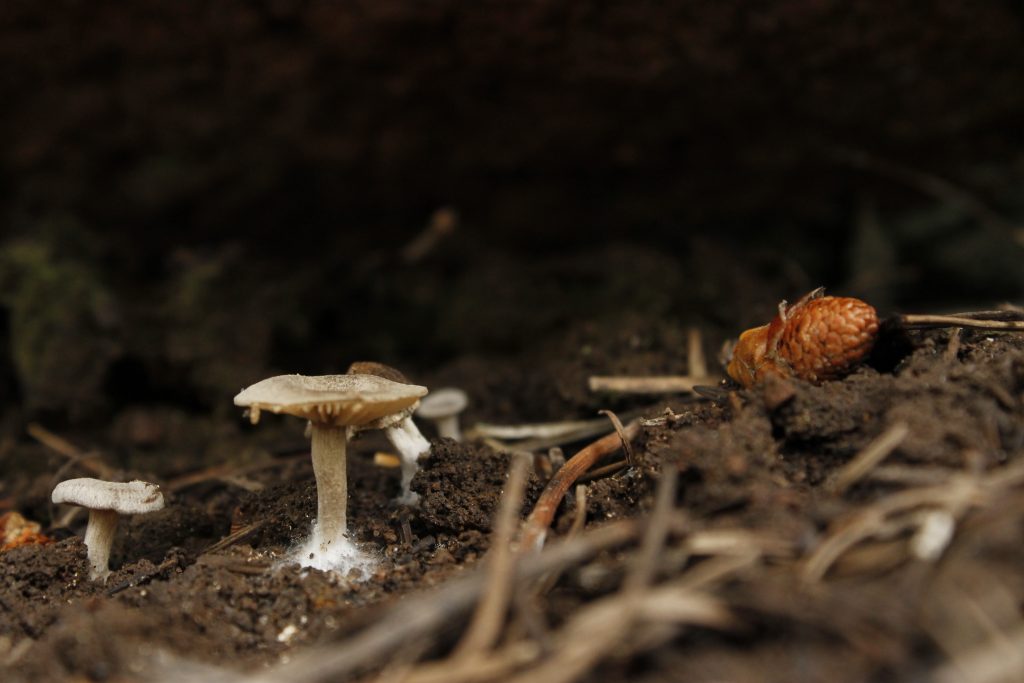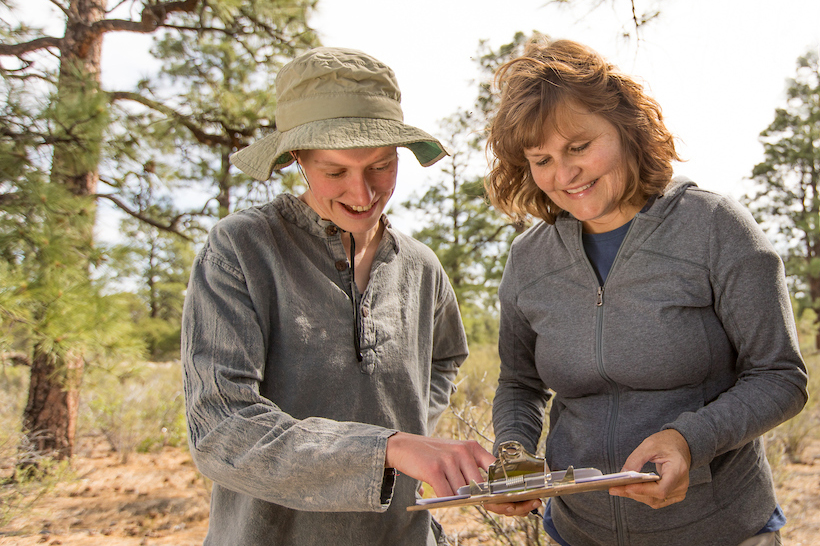By Lara M. Schmit
Merriam-Powell Center for Environmental Research
Soil fungal communities, which are strongly influenced by a plant’s inherited genetic traits, affect seedling success during drought conditions, according to Northern Arizona University research recently published in New Phytologist. These findings could be used to improve restoration success for Arizona forests experiencing drought-induced die-offs.
The study examined the soil fungal communities of pinyon pine seedlings (Pinus edulis) that were produced by either drought-tolerant or drought-intolerant mother trees. The species and diversity of the soil fungi that colonized the roots of the seedlings differed between these two types of seedlings. The more diverse fungal community associated with drought-tolerant trees provided the key to surviving drought.
“Our findings highlight the important role fungal mutualists play in determining the success of their host plants during drought conditions,” said Adair Patterson, the study’s lead author and an NAU Hooper Undergraduate Research Award recipient. “Many studies have examined the effects of drought on individual tree species, but few have considered how drought might interact with soil microbes to influence tree survival.”
Beneficial fungal communities help the host plant increase water and nutrient uptake and provide protection against harmful pathogens and parasites in exchange for sugars created by the tree.
A team of NAU researchers has been studying the importance of soil fungi to the growth and survival of pinyon pine for more than two decades that include drought and pre-drought conditions.

Coauthors include NAU’s Amy Whipple, Thomas Whitham and Gehring, and Lluvia Flores-Renteria from San Diego State University. Support for the research was provided by the National Science Foundation, NASA Space Grants and a Hooper Undergraduate Research Award.



